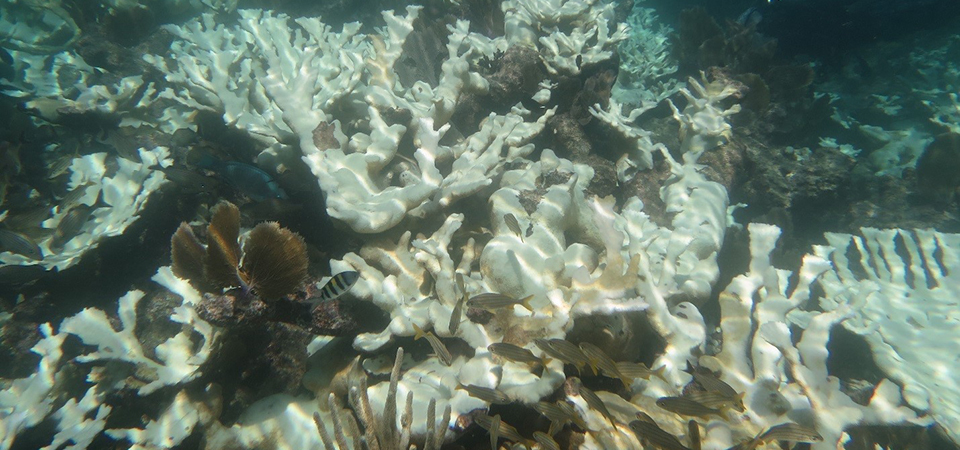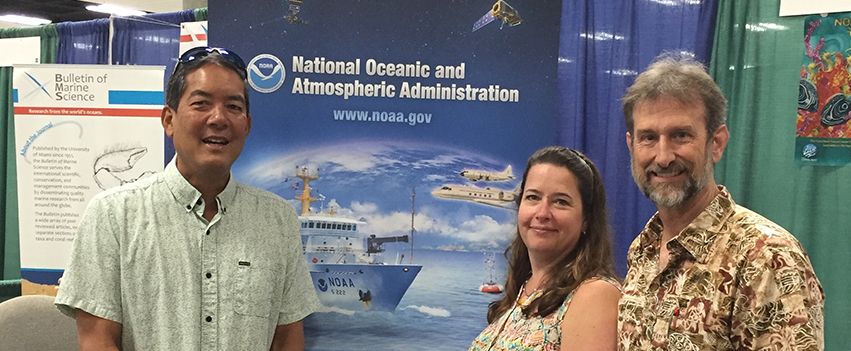Archive: Coral Bleaching Reddit "Ask Us Anything"
On June 30, NOAA scientists explain 2014-2017 coral bleaching and why there’s hope.

Ask Us Anything!
Corals reefs have had a tough few years, thanks to global warming and the intense El Niño of 2015/16, which triggered and prolonged the third global coral bleaching event on record and has only begin to diminish. And these ecosystems may not catch a break any time soon. NOAA researchers recently reported that the global coral bleaching event that started in 2014 could extend well into 2017. This is your chance to chat with three NOAA scientists on the longest global coral bleaching event on record and what we can, and are, doing to help during the June 30, 2016 Reddit 'Ask Us Anything'.
Reddit "Ask Us Anything" Details (Archive)
- Who: NOAA scientists Jennifer Koss, Mark Eakin, and Randy Kosaki
- What: Reddit Science "Ask Us Anything." NOAA scientists Jennifer Koss, Mark Eakin, and Randy Kosaki are available to talk about the global coral bleaching event that we are experiencing right now...ask them anything!
- When: 30 June, 2016, at 1:00 p.m. EDT
- Where: Coral Bleaching Reddit "Ask Us Anything" Link
Meet the Scientists

June 30 is your chance to ask these three NOAA scientists your questions on the longest global coral bleaching event on record. In this image, pictured from left to right, are NOAA scientists Randy Kosaki, Jennifer Koss, and Mark Eakin.
Jennifer Koss is the director of the NOAA Coral Reef Conservation Program. Jennifer leads a diverse staff that supports effective management and sound science to preserve, sustain, and restore valuable coral reef ecosystems for current and future generations. With experience working in the U.S. Congress, EPA, and NOAA, Jennifer’s career reflects her interests in marine science and domestic and international policy.
Dr. C. Mark Eakin is the coordinator of NOAA Coral Reef Watch, a program that monitors threats to coral reef ecosystems through satellite and in-water observations. Dr. Eakin works to better understand coral reef ecology, especially the impact of climate change on coral reefs, coral bleaching, ocean acidification, and the behavior of marine organisms. He has studied coral reefs around the U.S. and its territories, as well as internationally.
Dr. Randy Kosaki is a coral reef fish ecologist with NOAA's Papahānaumokuākea Marine National Monument. Dr. Kosaki's research specialization is in the use of advanced dive technologies such as closed-circuit rebreathers to explore the coral reef "twilight zone," or mesophotic (deep) coral reefs between 150 and 330 feet deep. His research is primarily focused on the remote reefs of the Northwestern Hawaiian Islands, but has taken him to numerous localities across the tropical Pacific.
More Information
Get Social
Did you know?
A healthy, resilient reef can either resist a stressful event, like bleaching, or recover from it. When a coral bleaches, it is not dead. Corals can survive if water temperatures return to normal quickly.
